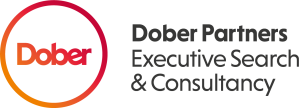A lobbyist is simply somebody who influences legislators. Lobbying in Brussels is a significant industry, led by well-educated, highly skilled, knowledgeable and mostly agreeable people. Every major commercial, not-for-profit, and governmental organisation lobbies in Brussels; academic programmes educate lobbyists; and well-established professional bodies like the Society of European Affairs Practitioners (SEAP) represent the sector and spread best practice. Moreover, the lobbying sector contributes hundreds of millions of euros to the Brussels economy, and fosters better EU policy-making for business and citizens.
The growth of lobbying in Brussels is inextricably linked to the growth and importance of the EU. Just over 20 years ago, there were 15 EU Member States and an estimated 10,000 lobbyists. Now there are 27 Member States and around 29,000 lobbyists in Brussels, according to the European Court of Auditors.
While Brussels is often criticised for being full of bureaucrats, in fact, there are only around 37,000 people employed by the EU here which is less than many European city councils. So, the EU relies on external advice and support to create policies that are rooted in the real world. Ironically, without lobbyists, it is likely the EU would have to hire more staff to engage with companies and society – who would in turn have to hire people to talk to them and probably call them lobbyists to make them effective!
This brief article discusses the main opportunities and rewards for lobbyists who represent the business community in Brussels via multinational companies, trade associations and public affairs consultancies.
Corporate EU Public Affairs in Brussels
Over 4,500 multinational companies actively lobby the EU, and around 625 have offices in or around Brussels. These companies originate from almost 40 countries and employ around 3,000 staff in key EU affairs functions.
The vast majority of EU corporate affairs staff are involved in public affairs and outreach to the EU institutions, anticipating threats and opportunities posed by EU policy, and advocating company positions. The size of their offices typically depends on the degree of regulatory threats and opportunities facing the company. Hence it is no surprise that of top 10 corporate spenders there are; five companies from the tech sector (Meta, Microsoft, Apple, Qualcomm and Google; four companies from the chemical or petrochemical sector (Bayer, Shell, BASF and ExxonMobil) and one tobacco company (BAT). These ten companies alone declare spending of around 45 million euros on lobbying and employ almost 80 full-time lobbyists.
When we recruit senior corporate public affairs executives, we usually look firstly at directly relevant policy or industry expertise. Although switching sectors is possible, especially at the junior level, senior corporate affairs people tend to specialize in one sector as the skills and even language required for instance in healthcare or financial services are quite distinct and usually take years to acquire. Also, usually at least half the time of a senior corporate affairs executive is focused internally, liaising with other corporate functions such as legal, regulatory affairs and communications often at C-suite level including the CEO. Hence, we look for specific interpersonal and political skills that tend to thrive in such corporate environments.
Trade Associations in Brussels
The association sector in Brussels is the largest employer of lobbyists. Out of 2,400 international associations in Brussels, there are around 500 European trade or business associations with a permanent secretariat according to the EU Transparency Register. While a significant proportion of these trade associations are relatively small with 5 or less staff, others are significant employers, with the European Chemical Industry Council (Cefic) at the top end with over 160 staff members working in a multicultural and multilingual European workplace. There are also more than 40 European trade associations staffed by mostly part-time specialists in Association Management Consultancies, Public Affairs Consultancies and Law Firms. In addition, there are hundreds of national organisations represented in Brussels – for instance there are approximately 50 German national trade associations with Brussels offices.
The skill set, experience and even personality we look for in association staff can be quite different when compared to corporate profiles. Trade associations are typically more consensus-oriented and slow-moving than many businesses, for example. In our report, “High Performance Secretariats”, we identified seven key attributes of successful association leaders. Boards tend to look first for strategic thinkers, then for first class politically savvy communicators and managers who can set strategy rather than necessarily sectoral experts, because such knowledge can be acquired on the job and already exists in the secretariat and membership. We also looked at the structure of the largest associations where there are typically up to 12 key functions, with one, two or three levels of hierarchy. For instance, in the Policy department there may be a Head of Policy (also called Public Affairs or Advocacy) who manages Senior Policy Officers and less experienced Policy Officers.
Public Affairs Consultancies and Law Firms in Brussels
The EU Public Affairs consultancy profession experienced massive growth in recent years despite the backdrop of inflation, COVID and the war in Ukraine. In 2025, there are 610 professional consultancies listed on the EU Transparency Register. A closer inspection of these firms’ agencies shows that there are less than 100 consultancies of sufficient size and experience to offer a broad public affairs service offering with offices in Brussels. In our annual BestinBrussels Guide, we highlight the top consultancies and law firms providing public affairs support predominantly to multinational companies and trade associations. The Guide can be downloaded for free at www.bestinbrussels.eu. The largest Brussels Public Affairs Consultancies employ well over 1,000 staff collectively and are in alphabetical (not size) order; Acumen, APCO, Brunswick, Burson, DGA, Edelman, FIPRA, FGS, FleishmanHillard, Forward Global, FTI, Kreab, Penta, Political Intelligence, Rud Pedersen, Teneo and Weber Shandwick.
Larger consultancies tend to organize their businesses around practice groups specializing in either vertical policy areas like tech, financial services or healthcare, as well as around horizontal specialisms applicable to any sector such as media relations or sustainability.
Hence, consultancy is a great place for any aspiring public affairs professional to start their career, as they will often be exposed to multiple clients from different sectors, and provide various services from analysis to strategic advice and lobbying. They are also great training grounds for people who want to leave the EU institutions earlier in their career (e.g. Commission interns and MEP assistants) and join the world of business. The hours can be long but the intellectual and financial rewards can be considerable at the top end. A key difference between working in a consultancy versus working “in-house” is the need to win new business which becomes more important further up the ladder and is not for everyone. However, if you enjoy the thrill of the chase and beating your competitors it can be a very satisfying business!
Measured by numbers of full-time lobbyists and persons involved, the top law firms with public policy capabilities in Brussels are (in alphabetical order): Bird&Bird, Covington, DLA Piper, Freshfields, Norton Rose Fullbright and Squire Patton Boggs. However, if you want to make your fortune in Brussels one career track to consider would be as an antitrust lawyer – as partners can earn well in excess of 1 million euros in top firms, and even starting salaries can be over 100,000 euros for recent graduates.
The Rewards
Happiness and Job Satisfaction
Public affairs is generally a happy profession. For instance, we know that talking to secretariat staff over many years that the Brussels association community is a generally happy group of people who tend to be really engaged in their work. There are many reasons for this measure of job satisfaction, which include working with an interesting group of colleagues from different countries on challenging issues. Relative job security and a reasonable work-life balance are also critical components of workplace wellbeing and where association life scores highly. Indeed, according to our most recent survey of over 600 association staff we find around three quarters are either happy or very happy!
Compensation & Benefits
Dober Partners specializes in recruiting senior public affairs executives in Brussels and selected European capitals. Through regular contacts with clients and candidates we have amassed considerable data on compensation packages in Brussels, across sectors and seniority levels. Hence, we are often asked about salary ranges in Brussels and publish reports on this subject some of which can be downloaded for free on our website at https://www.doberpartners.com/reports/.
Overall EU lobbyists salaries are considerably higher than those found in the general Belgian economy, reflecting the premium paid for European affairs positions, which attract high calibre staff from around the European Union. Nevertheless, Belgian salaries tend to be higher than most European average salaries. Given the high levels of social security and income taxation such high salaries are hardly surprising, however. Moreover, the laws of supply and demand have a key part to play in the relatively high salaries in European government affairs. The general rule is you earn more money if your talents are scarce, and demand for EU affairs staff has grown considerably over the last years as consultancies, associations and corporate offices have expanded in number and size. Indeed, we have hired a number of top public affairs executives earning over 800,000 euros in recent years, but such cases tend to be outliers in Brussels.
Although there is an overall public affairs jobs market, how much people earn varies considerably between associations, companies and associations. The key finding of our previous remuneration analysis was that salaries in Brussels vary enormously, not just between sectors but between organizations in the same sector. Some of these variations are easy to explain by relative size, wealth and importance of the organizations their staff represent, other times ‘Lady Luck’ seems to have played more than her fair part.
Also, some corporate sectors simply pay more as they are more profitable than other sectors which might suffer from low margins. Hence, financial services and pharmaceuticals have tended to pay much higher salaries than chemical or retail companies. According to our research, the pharmaceutical, financial services and technology sectors pay some of the best salaries in Brussels. Hence, we see massive variations in compensation – for example a Brussels Heads of Office might earn a base salary of typically anywhere between 140,000 and 300,000 euros plus bonus, shares and generous benefits, and more.
Beyond the corporate affairs talent pool, we recruit association leaders and senior consultants. Many of these individuals are paid on an independent contractor basis without additional benefits, which allows for considerable tax and social security savings compared to salaried employees. Typical compensation in this category is often around 200,000 euros per annum with 250,000 to 350,000 packages surprisingly common.
Most senior consultants at the top end tend to operate through their own management companies which invoice on a monthly basis and receive performance-based bonuses on top. Some have equity in their consultancies or their holding companies while others are salaried employees. Compensation varies tremendously among senior consultants with most earning in the 100,000 euro to 300,000 euro band with a fortunate few earning in excess of 400,000 euros.
However, money is only one part of happiness and job satisfaction, it is also about having positive colleagues and bosses, work-life balance, job autonomy, career development opportunities, and possibly even a higher purpose to what you do. European public affairs jobs typically tick many of these boxes. So, my advice is enjoy what you have and appreciate the fact that you are in one of the world’s most interesting cities to work.
Mark Dober, Managing Partner of Dober Partners, specialists in Public Affairs recruitment


